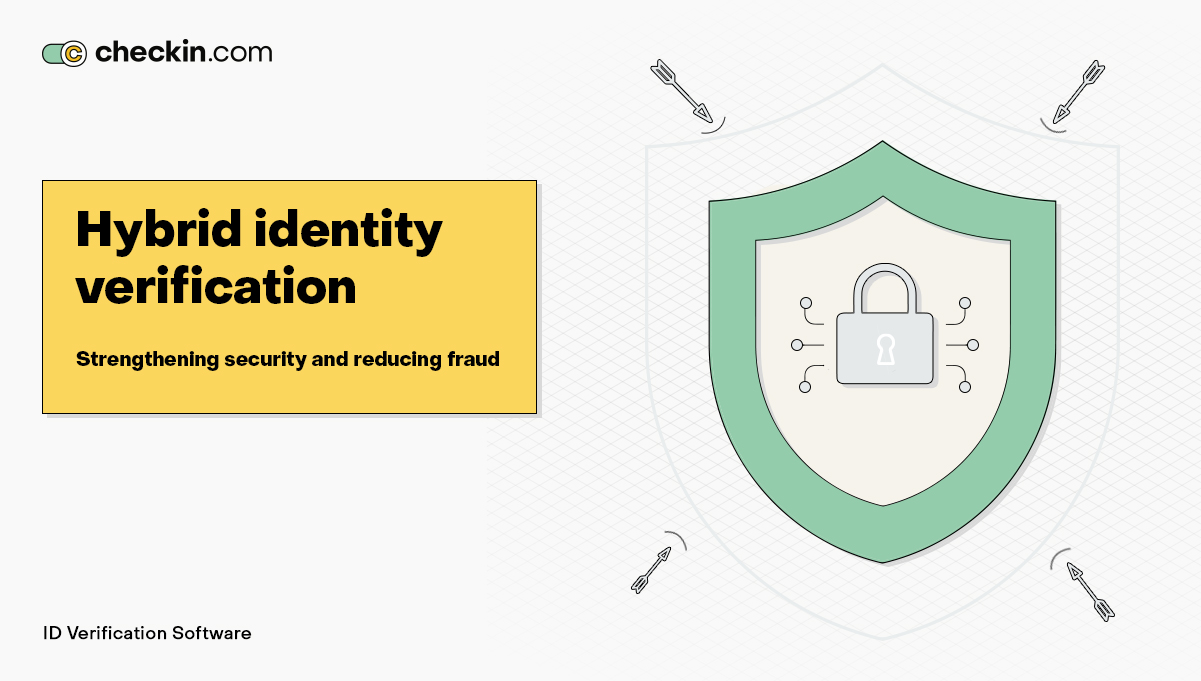
Hybrid Identity Verification
10 Apr 2023
In today’s digital landscape, companies face a constant battle against fraud and identity theft. To fortify their security measures, many organizations are turning to hybrid identity verification, a powerful combination of knowledge-based authentication (KBA) and biometrics.
This article explores the concept of hybrid identity verification, its benefits, and how it is transforming the fight against fraud.
Understanding Hybrid Identity Verification
Hybrid id verification service refers to the use of multiple authentication methods in combination to establish and confirm an individual’s identity. This approach combines the strengths of different verification techniques to create a more robust and reliable system.
Companies often integrate knowledge-based authentication, which involves evaluating personal information known only to the individual, with biometric authentication, which relies on unique physical or behavioral traits.
The Benefits of Hybrid Identity Verification
- Enhanced Security: By combining different verification methods, hybrid identity verification adds an extra layer of security, making it more difficult for fraudsters to bypass the system.
- Reduced Fraud: This approach significantly lowers the risk of fraudulent activities by leveraging multiple authentication factors.
Applications of Hybrid Identity Verification
- Financial Institutions: Hybrid identity verification is vital for banks and financial institutions to protect customer accounts and ensure secure transactions.
- E-commerce Platforms: Online retailers can enhance security and reduce the risk of fraud by implementing hybrid identity verification during customer transactions.
- Healthcare Providers: Hybrid identity verification plays a critical role in safeguarding patient information and preventing medical identity theft.
Future Trends and Considerations
As technology continues to evolve, hybrid identity verification is likely to see further advancements. Companies are exploring the integration of emerging technologies, such as artificial intelligence and machine learning, to improve the accuracy and efficiency of verification processes.
Additionally, privacy concerns and compliance with regulations, such as the General Data Protection Regulation (GDPR), should be carefully addressed when implementing hybrid identity verification systems.
- Advancements in Technology: The integration of emerging technologies like artificial intelligence and machine learning can further improve the accuracy and efficiency of hybrid identity verification systems.
- Privacy and Compliance: Organizations must address privacy concerns and ensure compliance with regulations, such as GDPR, when implementing hybrid identity verification.
Conclusion
In conclusion, hybrid identity verification, with its powerful combination of knowledge-based authentication (KBA) and biometrics, is at the forefront of the battle against fraud. This innovative approach not only enhances security but also significantly reduces the risk of fraudulent activities by leveraging multiple authentication factors.
By adopting hybrid identity verification, organizations can establish a robust system that ensures only authorized individuals have access to sensitive information and transactions, fostering trust and confidence in the digital realm.
As technology continues to advance, the future of hybrid identity verification looks promising. Ongoing developments in artificial intelligence and machine learning are poised to enhance the accuracy and efficiency of these verification systems even further. With the ability to adapt to emerging technologies, hybrid identity verification will remain a critical tool in the fight against fraud and identity theft.
FAQ
How does hybrid identity verification enhance security?
Hybrid identity verification combines multiple authentication methods, making it more challenging for fraudsters to bypass the system and increasing overall security.
Can hybrid identity verification be used in different industries?
Yes, hybrid identity verification has broad applications, including finance, e-commerce, and healthcare, where secure identity verification is crucial.
Are there any privacy concerns with hybrid identity verification?
Privacy concerns should be carefully addressed when implementing hybrid identity verification systems to ensure the protection of individuals’ personal information.
Is hybrid identity verification more secure than single-factor authentication methods?
Yes, hybrid identity verification offers greater security compared to single-factor authentication methods. Combining multiple authentication factors, such as knowledge-based authentication (KBA) and biometrics, creates a more robust and reliable system that is significantly harder for fraudsters to bypass.
How user-friendly is hybrid identity verification?
Hybrid identity verification can provide a user-friendly experience. While it involves multiple verification steps, advancements in technology have made the process smoother and more seamless. User-friendly interfaces and intuitive interactions help guide individuals through the verification process, ensuring a positive user experience without sacrificing security.